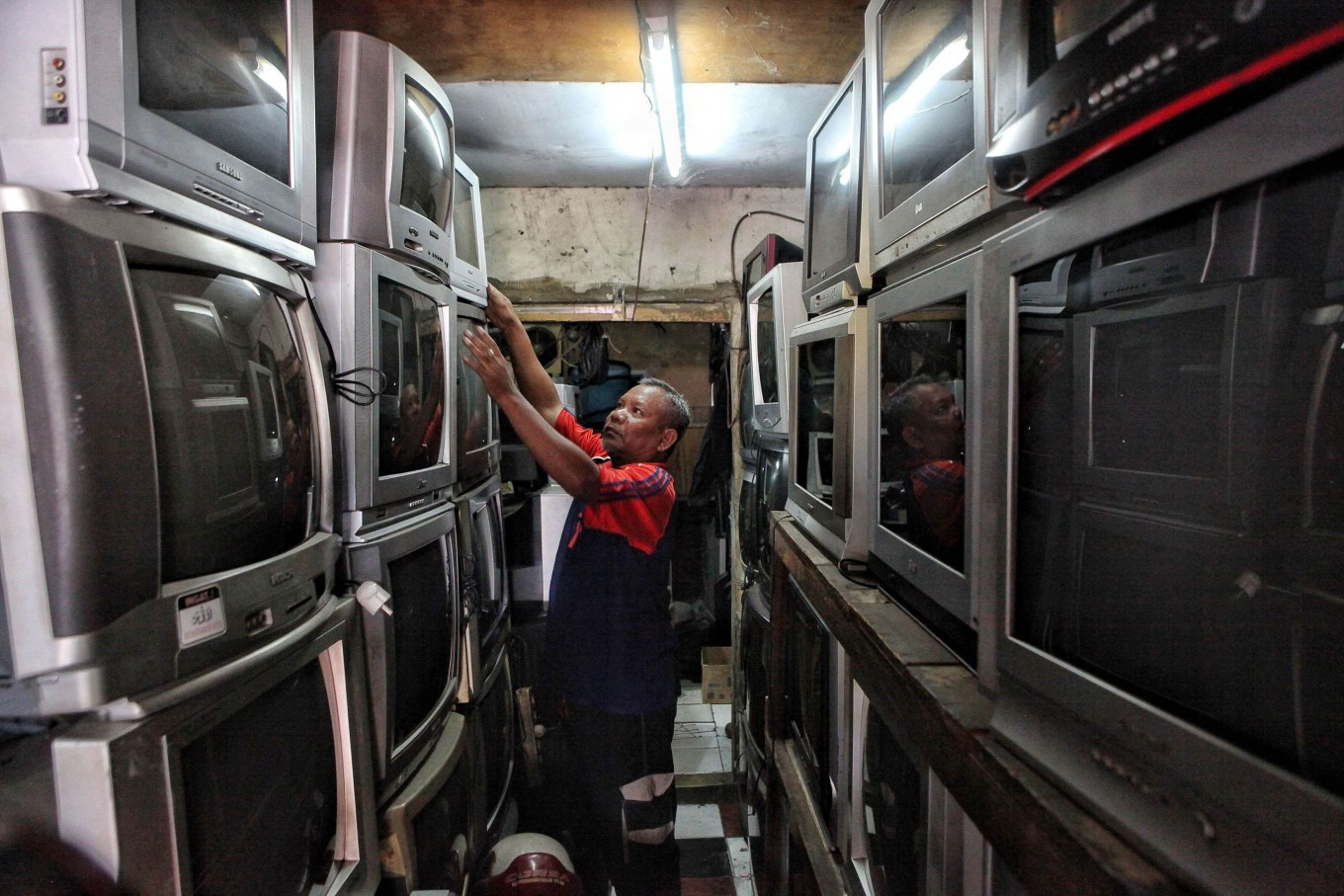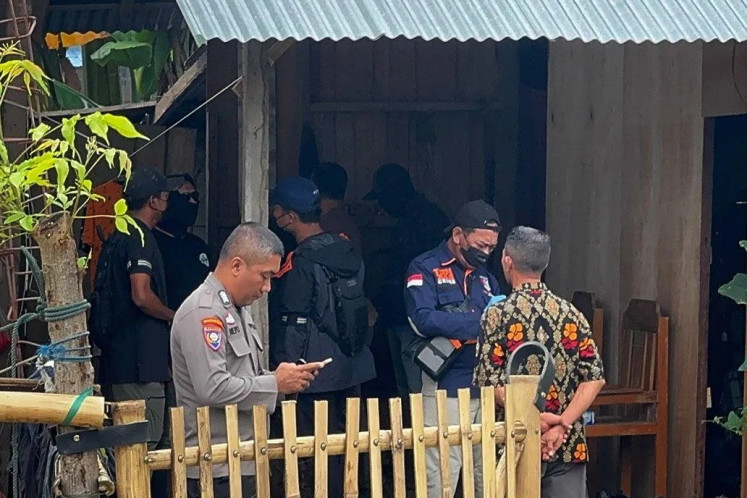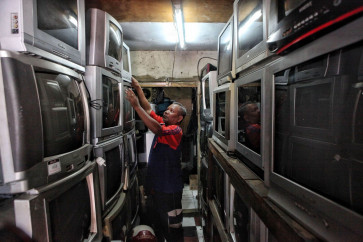Popular Reads
Top Results
Can't find what you're looking for?
View all search resultsPopular Reads
Top Results
Can't find what you're looking for?
View all search resultsAnalysis: Seven years late, TV analog switches off on Nov. 2, yet three TV groups disagree
Change text size
Gift Premium Articles
to Anyone
T
he government finally migrated on Nov. 2 analog free-to-air TV to digital broadcasts through the analog switch off (ASO) program for almost half of 514 regions in Indonesia, including the Greater Jakarta area, after seven years of delay. The government will free some TV frequencies for other purposes, including 5G fast internet services. And yet, three TV groups challenged the ASO, arguing that the people are not yet ready.
Coordinating Political, Legal and Security Affairs Minister Mahfud MD surprised many when he revealed last week that seven TV stations – RCTI, MNC TV, Global TV, iNews TV, TV One, ANTV, and Cahaya TV – still conducted analog broadcasts. Mahfud said the seven TV stations conducted illegal broadcasts as the government had revoked their analog radio broadcast.
RCTI, MNC TV, Global TV and iNews TV belong to the Media Nusantara Citra (MNC) Group, owned by businessman-politician Hary Tanoesudibyo, while TV One and ANTV are part of the VIVA group, affiliated to the politically connected Bakrie Group. Meanwhile, Banten-based Cahaya TV belongs to businessman Bambang Santoso, chairman of the Indonesian TV Network Association (ATVJI), the lobby group that managed to postpone the migration of analog to digital broadcasting for seven years.
MNC Group chairman Hary Tanoesudibjo said his group had reluctantly joined the ASO on Nov. 3 but would challenge the ASO to the court. He said the people are not ready with the ASO, and also, the basis for the ASO is the problematic 2020 Job Creation Law that the Constitutional Court declared as “conditionally unconstitutional” in 2021.
Mahfud welcomed Hary’s planned lawsuit, arguing that 98 percent of Indonesian households were ready to migrate to digital broadcasting. Also, Mahfud added, despite the Constitutional Court’s decision, the ASO policy was legal and enforceable and the government would not annul the ASO policy and rather faced the challenge in court.
Indonesia has long tried to migrate from analog TV to digital but to no avail due to resistance from major broadcasters in the country that have hugely invested in analog technology. A plan to revise Law No. 32/2002 on broadcasting, which was going to be the legal basis for television digitalization, has been on the table for 10 years without any meaningful progress. After the passage of the Job Creation law in 2020 that amended some articles of the 2022 Broadcasting Law, Indonesia scheduled the ASO. As a result, Indonesia is seven years late in entering the era of digital TV.
The government on Nov. 2 managed to implement the ASO for 222 out of 514 regencies and mayoralties across the country. The remaining 292 regions are still waiting for the government to distribute free digital TV adapter set-top boxes (STBs) for low-income families. As of Nov. 2, the Communication and Information Ministry and private TV stations managed to distribute about 1.1 million STBs or 20 percent of the total 5.5 million STBs allocated for low-income families.



















